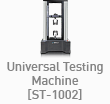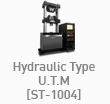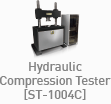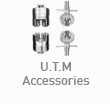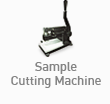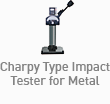| [ASTM] ASTM C307 Standard Test Method for Tensile Strength of Chemical-Resistant Mortar, Grouts, and Monoli | |
|---|---|
| Writer : 관리자(salt@light-salt.kr) Date : 24.04.09 Hit : 20 | |
| Tags : #MaterialPropertyTester #MaterialTestingMachine #CompressionTester #UTM #TensileTester #UniversalMaterialTestingMachine #SALT #UniversalTester #CompressiveStrength #Concrete #ConcreteTensileTest #HydraulicTensileTester #HydraulicUniversalMaterialTestingMa | |
| Attachments : | |
|
Hello~! This is SALT CO.,LTD. a specialized manufacturer of material testing machines.
Today, let's talk about ASTM C307
What is ASTM C307?
This standard covers the determination of tensile strength of hardened chemical-resistant materials in molded briquette form. These materials include mortars, brick and tile grouts, machine grouts, and monolithic surfacings based on resin, silicate, silica, or sulfur binders. While these materials typically experience compressive forces, this tensile test helps to reveal other properties such as curing rate and how the material performs in situations where it's not subjected to 100% vertical loading.
ASTM C307 specimens
Length: Typically 3 inches (approximately 76mm). Width: Ends of the specimen are typically 1 3/4 inches (approximately 44mm). Thickness: Thickness of the specimen is typically 1 inch (approximately 25mm). Specimens used in ASTM C307 typically have a specific shape. They are in the form of a briquette, usually resembling a rectangular or square prism. These specimens are manufactured to specific dimensions and shapes to evaluate material properties and are designed to be properly gripped for tensile testing. Hence, according to ASTM C307, specimens typically have a briquette shape, designed to suit the purpose of measuring the tensile strength of the material.
Testing equipment and grips required for ASTM C307
SALT's ASTM C307-specific grips
ASTM C307 provides a test method for measuring the tensile strength of chemical-resistant mortars, grouts, and monolithic surfacings. This test is typically conducted using a Universal Testing Machine, along with specific types of grips. These grips are used to securely hold the specimen in place and perform the tensile test. By attaching the grips to the shoulders of the specimen, it is ensured that the specimen remains stable under tensile forces. These grips are detailed in the ASTM C307 standard, with their shape and size regulated to ensure the accuracy and consistency of the test.
Performing tensile tests with ASTM C307-specific adhesive grips.
Testing conducted using SALT's universal material testing machine(ST-1000).
Salt Co., Ltd.'s all-purpose material tester provides a variety of grips, extensometers and test solutions to meet the requirements of physical property testing of various materials.
"We value our relationship with you more than just selling our products."
Salt-s@Light-Salt.kr www.light-salt.kr |
|
| Prev | ASTM F1306 - Standard Test Method for Slow Rate Penetration Resistance of Flexible Barrier Films and |
| Next | ASTM C109/C109M standard test method for compressive strength of hydraulic cement mortars |
|
|
























